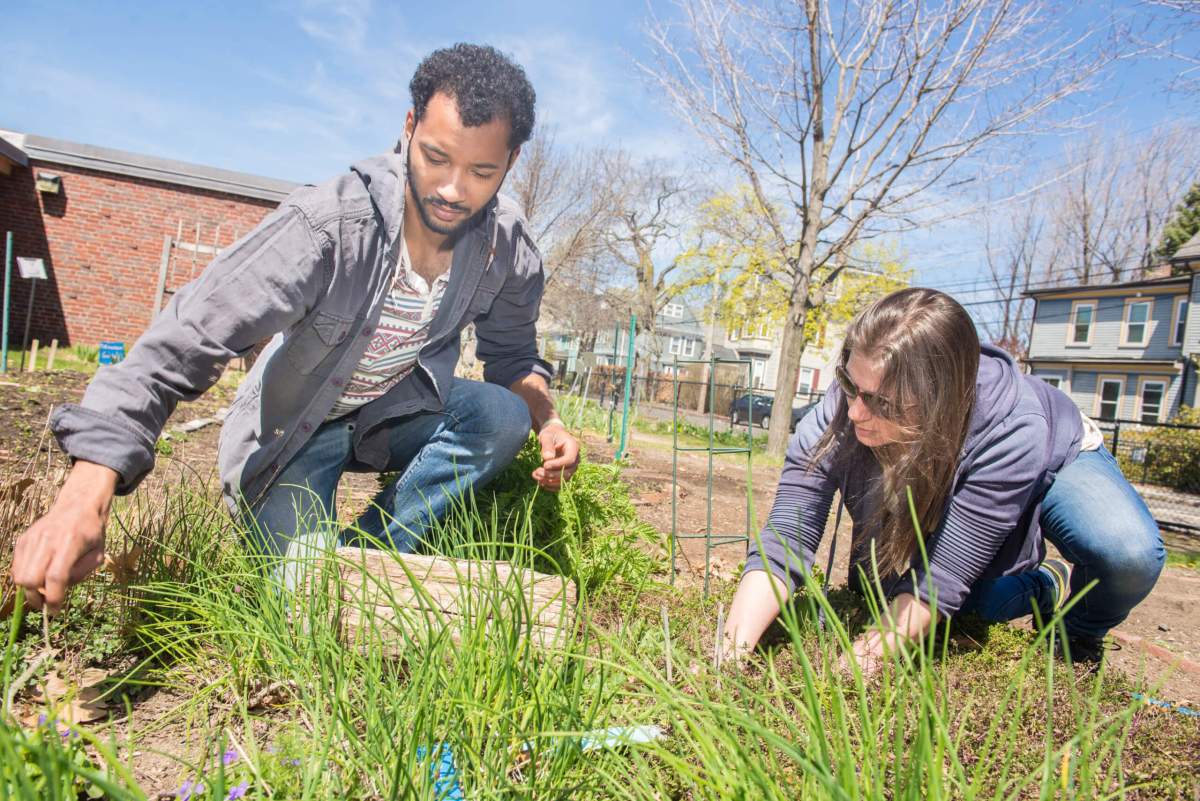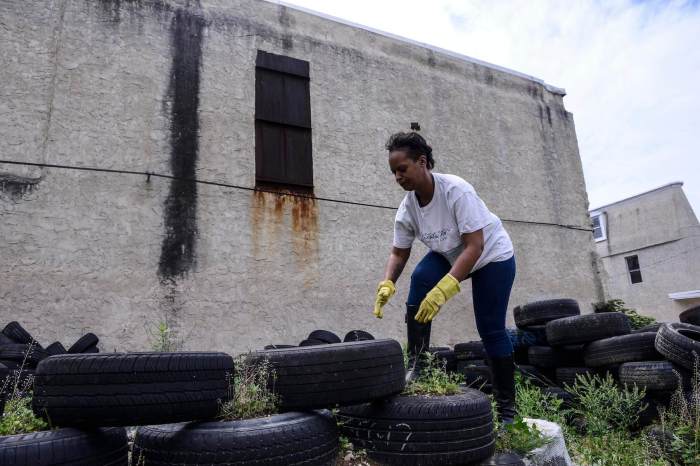For 15 years, CitySprouts in Cambridge has been working to get more kids learning while playing in the dirt.
The nonprofit over the years has built gardens at every elementary and middle school in Cambridge – where students plant peas, flowers, blueberries and other crops, study the growth of vegetables and snack on earth-grown treats they nurtured by hand. “Every day is Earth Day for CitySprouts,” said Jane Hirschi, its executive director.
The organization provides schools above-ground garden beds and a part-time gardening coordinator who help teachers weave gardening into existing curricula.
Gardening, Hirschi said, can be worked into lessons in any subject – from science and math to English and social studies.
RELATED: Somerville ‘Chickeness’ teaches Boston how to raise urban chickens For a math class, students might track the growth of a pea plant over time and plot it on a chart. Or they might write essays about the proper way to care for vegetables or to press apples into cider. “We’re really working with schools on the school or district lessons the teachers are already doing,” Hirschi said. “It’s a way for kids who wouldn’t normally be excited about data collection or math or numbers, and normally wouldn’t get the chance to be outside and also be learning.” But apart from that, she said, gardening is just another way of getting kids outside, appreciating nature and learning more about where food comes from and why they should be stewards of the environment. Now CitySprouts is hoping to expand its program to more schools in Boston.
RELATED: Berkshires grandfather finishes statewide canoe trip for clean water Schools interested in taking part pay $8,000 per year, an investment CitySprouts matches 2-1.
Seven middle and elementary schools in Boston currently take part, and the organization plans to start working with at least two more schools this year, she said.
Hirschi said her vision is to make the two cities a model of garden-based learning for other school districts.
“I feel like gardens in schools are as important as a library or the computer lab,” she said. “I feel it’s that critical.”
In time for Earth Day, CitySprouts brings gardening to Boston schools

Derek Kouyoumjian/Metro


















